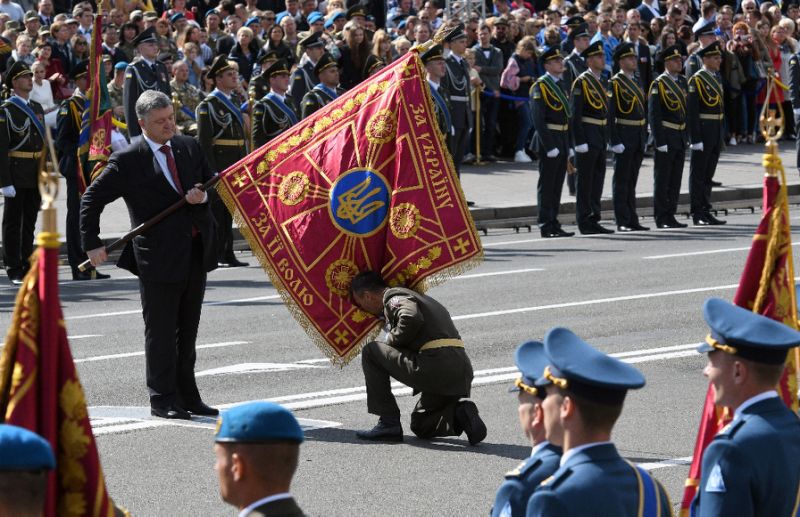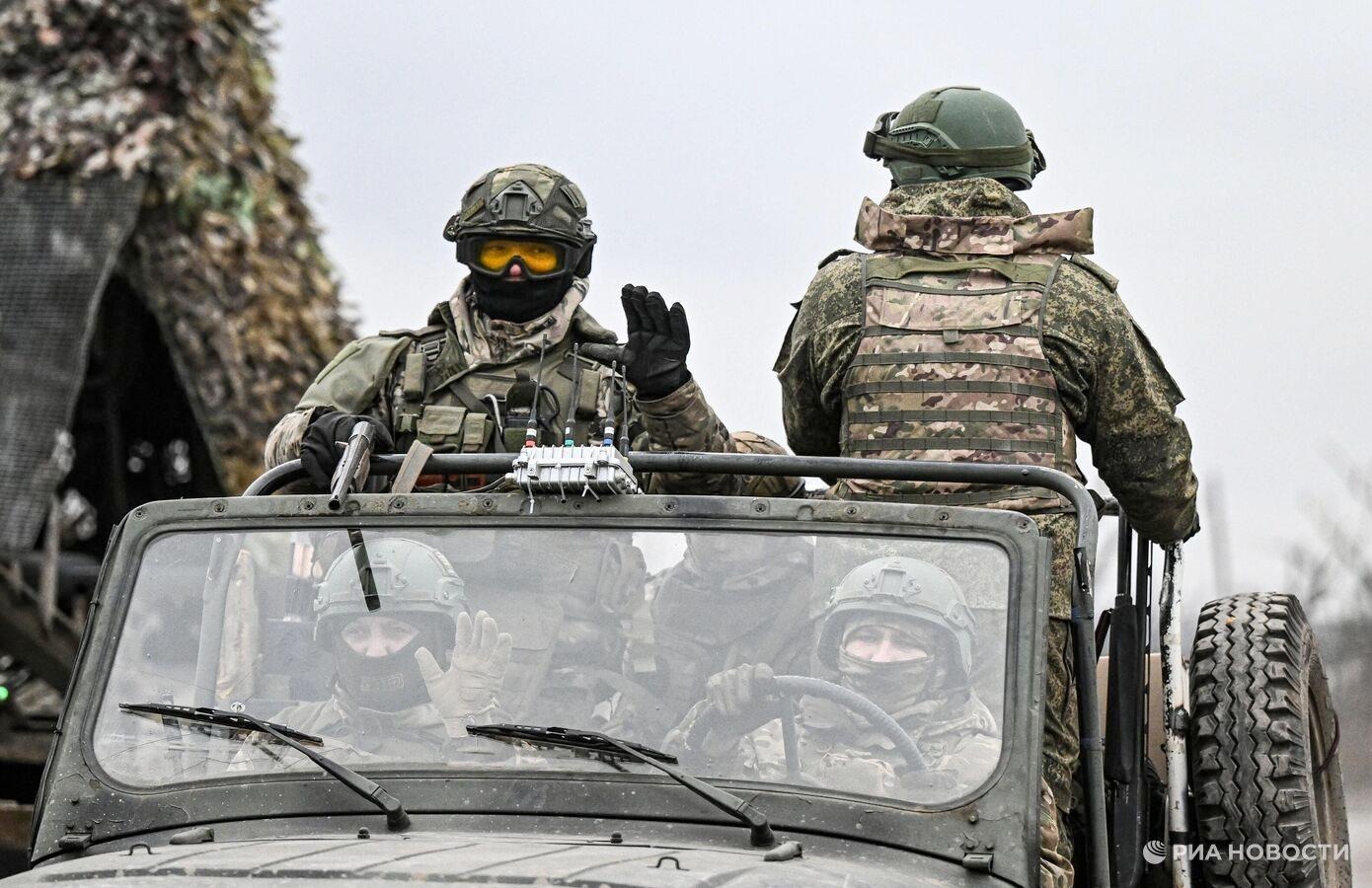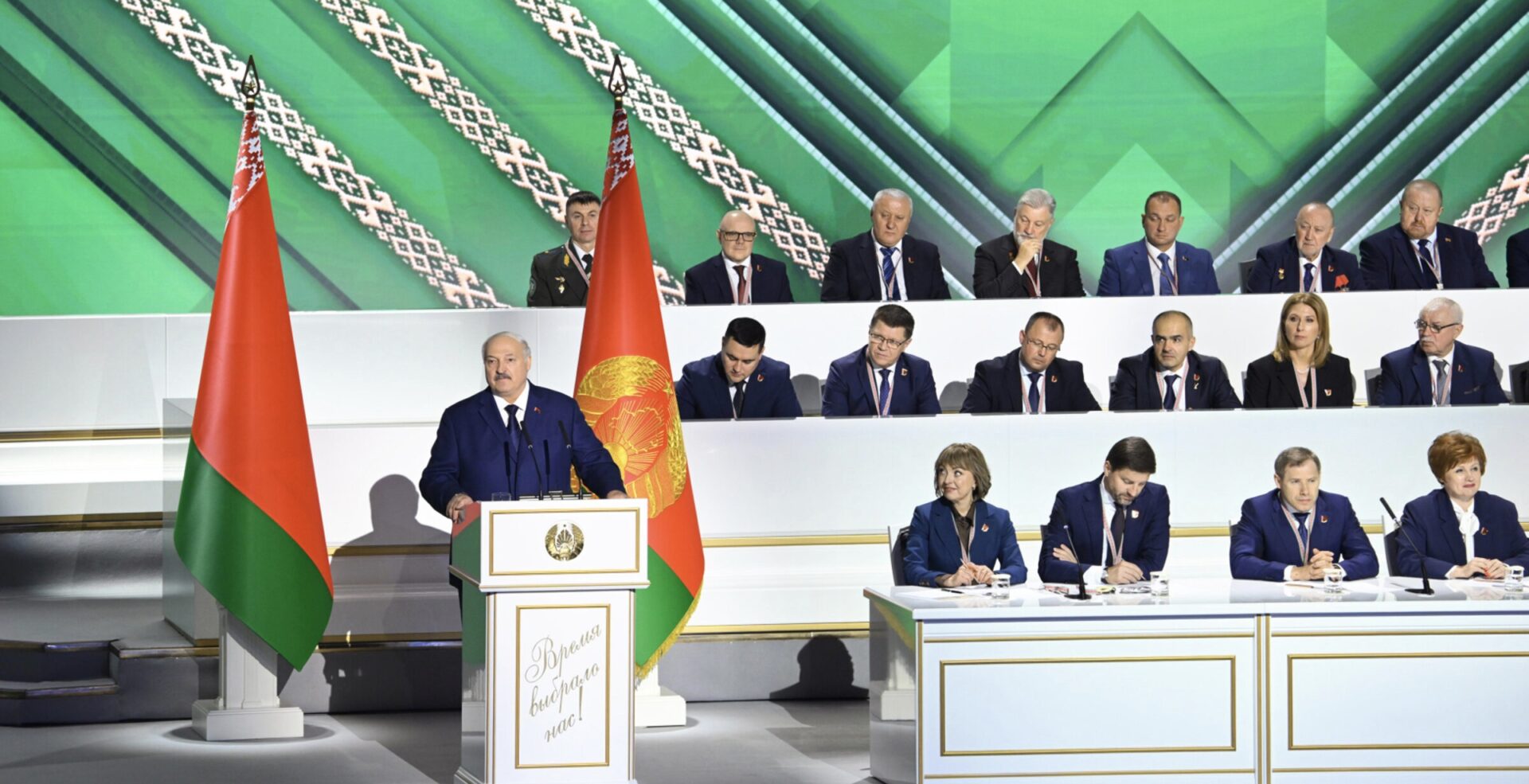
Legislative National Security Upgrade Stalls in Ukrainian Parliament
Legislative National Security Upgrade Stalls in Ukrainian Parliament
The Verkhovna Rada’s (Ukrainian parliament) committee charged with national security and defense delayed the progress, on March 19, of Draft Law 8068 “On National Security” (Rada.gov.ua, accessed March 21), which had been submitted to the legislature by President Petro Poroshenko on February 28. The Rada committee also previously delayed a vote on the draft law on March 15. The committee was not prepared to send the presidential Draft Law to the voting chamber without making some fairly significant amendments first (Pravda.com.ua, March 19). But these would have required the bill to return to the president for review.
Law 8068 “On National Security” is supposed to repeal and replace the entirety of Ukraine’s pre-existing legislative national security architecture: namely, the law on the “Fundamentals of National Security 2003” (Rada.gov.ua, November 30, 2017), the law on “Democratic and Civilian Control over the Military Organization and Law Enforcement Agencies of State 2003 (Rada.gov.ua, December 7, 2017) and “On the Organization of Defense Planning 2005” (Rada.gov.ua, November 18, 2004). Those laws, themselves are little more than updates of legislation from the 1990s, and thus are completely inadequate to the challenges contemporary Ukraine now faces and will continue to confront.
In comparison with the legislation currently on the books, the draft law “On National Security” features several key changes. Among those, Draft Law 8068 brings with it a number of budgetary and planning obligations. Specifically, the current bill under consideration stipulates that a minimum of 5 percent of annual GDP be spent on national security and defense, with 3 percent devoted exclusively to defense. Also a minimum mandatory 0.5 percent of GDP is to be allocated to the Ukrainian military industrial complex. The aim is to provide for capacity-based planning and to protect defense spending from being curtailed because of other potential budgetary priorities.
Second, long-term planning has been defined as looking forward more than 5 years. Within the pre-existing statutes, it was identified as 12 years. However, it remains to be seen if this will result in a change in institutional thinking.
Third, the previously somewhat expansive and questionable list of what were considered fundamentals of national security has been reduced. Instead, the new law identifies the core national security tasks as defending state sovereignty and territorial integrity, developing the economy and civil society, as well as increasing the quality of life of the population. In short, the new legislation seeks to codify and deliver the military, political, economic and societal “resilience” demanded by Article 3 of the Washington Treaty, (Nato.int, June 22, 2016), thus pointing Ukrainian development in the direction of the North Atlantic Treaty Organization (NATO)—and the European Union.
Fourth, Article 15 of the Draft Law “On National Security” will finally prevent the military from controlling the Ministry of Defense. The statute dictates that, as of January 1, 2019, the posts of minister of defense and both deputy defense ministers can only be held by civilians. Thus, when the law is finally adopted, the current defense minister, General Stepan Poltorak, will be obligated to vacate the post he has held since October 14, 2014. Or if he wishes to retain it, he will have to officially leave the military.
Fifth, Article 16 is devoted to the restructuring of the General Staff and the Armed Forces. The positions of chief of the General Staff and commander of the Armed Forces of Ukraine are currently both filled by General Viktor Muzhenko. The new statute, when in force, will requires two separate individuals in these positions.
The outcome, by January 2021, will be the subordination of the country’s highest military officer, the commander of the Armed Forces of Ukraine (CAFU), to the president and the (civilian) minister of defense. Beneath and subordinate to the CAFU will be the General Staff, the Joint Operational Headquarters of the Armed Forces (to be fully established and operational by January 2021; it is already headed, as of March 16, 2018, by Lieutenant General Sergei Naev—Interfax, March 16), the special forces units, and other military commands and control agencies.
Prima facie, little will change for the other ministries and institutions. Though it is noteworthy that in a time of war the Ministry of Interior will have to cede its command of the National Guard to the commander of the Armed Forces.
It can be anticipated that the role and parameters of the Security Service of Ukraine (SSU) will also witness legislative changes later in the year, particularly as President Poroshenko likely makes national security and defense a foundation of his reelection campaign. The new Draft Law “On National Security” will therefore be considered by many as the start of that process.
The passing of Draft Law 8068, assuming it happens, is likely to be welcomed by the external partners of Ukraine. On February 9, United States Secretary of Defense James Mattis sent a tweet calling upon the Verkhovna Rada to speedily adopt the new law in order to “[ensure] a solid legal basis for defense reforms in support of a secure and democratic Ukraine” (Liga, February 9).
It remains to be seen just what amendments will now be made prior to the first reading and vote within the Verkhovna Rada, and just how that may change the spirit and outcome of any final statute. And further amendments would of course be possible between the first and second reading and the bill’s final vote later in the year. What is clear, however, is that if the parliamentary national security and defense committee fails to vote through Draft Law 8068 before March 22, which is the end of that plenary session, this bill may be indefinitely delayed.
It further remains to be seen whether placing the Ministry of Defense under civilian control will bring with it enough required transparency (in so far as is practicable) to more effectively control the corruption within both the Ukrainian military industrial complex and the Armed Forces themselves. Those same Ukrainian partners supportive of Draft Law 8068 will certainly have such transparency expectations given the level of political, diplomatic, advisory, material and financial support they provide in this sphere. Thus, delays in upgrading the national security legislation may ultimately directly relate to delays in practical support from Ukraine’s international partners.


